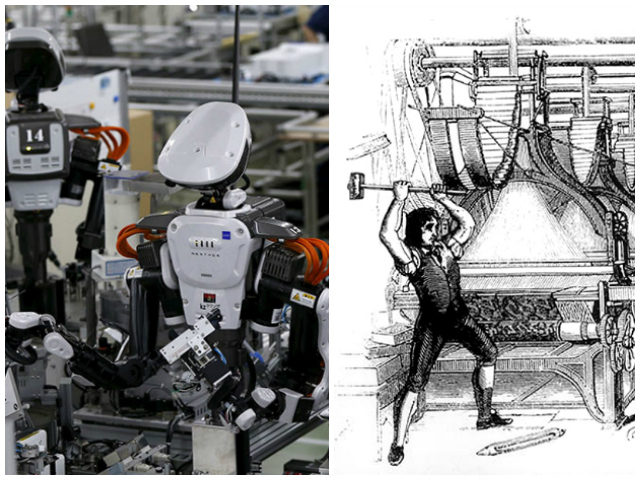Anand Giridharadas writes in the New York Times about the potential for a populist revolt sparked by technology that will increasingly “take away people’s jobs.”
To spend time in Silicon Valley in a year of political upheaval is, on one level, soothing. It is pleasant to hear talk of wearables, walled gardens and disruptive beverages in between updates about mass deportation.
But there is another conversation happening in the valley today. Its premise is that, when it comes to populist revolt, we may have seen nothing yet.
The idea is: If you think globalization, immigration, trade and demographic change have contributed to displacement and political anger, wait until robots take away millions and millions of jobs, including those requiring the use of a well-trained brain.
Some believe it will be glorious to live in this “disruptive” future; others believe it will pose devastating social and political challenges that dwarf anything being discussed in this election.
And then there are those, like Vinod Khosla, who ardently believe both things.
Mr. Khosla, a billionaire venture capitalist and a Silicon Valley celebrity, is gung-ho on disruption and an investor in start-ups that are building technology to take away people’s jobs.
“If you’re doing anything disruptive, you’re disrupting somebody, and somebody’s getting hurt,” he said at a conference last year. “Revolutions are hard on people. People get killed. People get hurt.”
And yet Mr. Khosla is part of a cohort of Silicon Valley types who have begun to sound warnings about the very future they are invested in.
“It seems likely that the top 10 to 20 percent of any profession — be they computer programmers, civil engineers, musicians, athletes or artists — will continue to do well,” he told me. “What happens to the bottom 20 percent or even 80 percent, if that is the delineation? Will the bottom 80 percent be able to compete effectively against computer systems that are superior to human intelligence?”
[…]
Mr. Khosla looks at the technologies he and others are investing in and sees massive displacement down the road. He thinks of it as both an entertainment problem (how would we occupy the minds of all those jobless people?) and a political problem (how do we keep those people from revolting?).
Read the rest here.

COMMENTS
Please let us know if you're having issues with commenting.